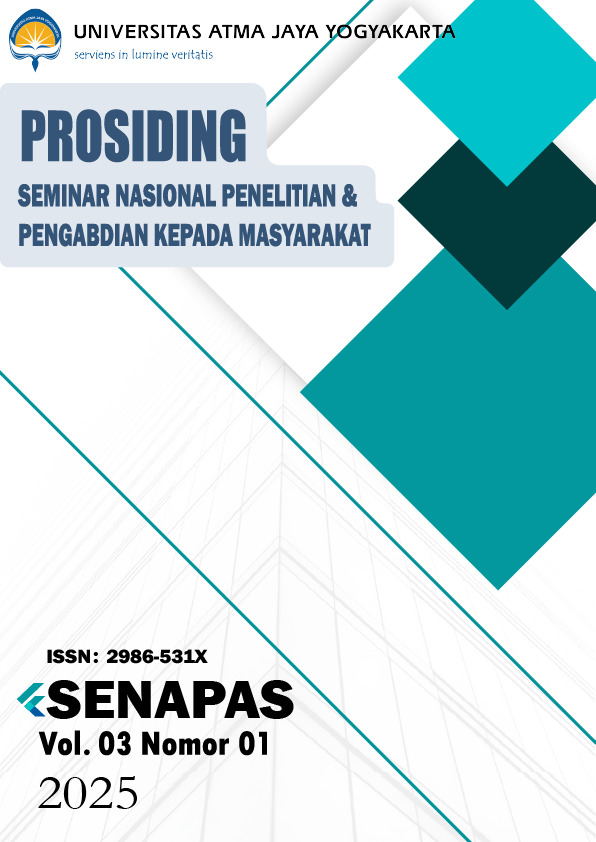Optimism on checkout
Emotional shifts and trust building in gen Z online shopping
DOI:
https://doi.org/10.24002/senapas.v3i1.11897Keywords:
Gen Z, online shopping, emotional transformation, trust, narrative analysisAbstract
This study explores the emotional transformation experienced by Generation Z consumers in their journey of online shopping, focusing on the shift from initial skepticism and pessimism to trust and optimism. Drawing upon narrative analysis of ten firsthand accounts, the research identifies patterns of emotional progression influenced by repeated digital interactions, peer influence, and learning behavior. The study contributes to sustainability in e-commerce by highlighting how trust in digital platforms fosters more deliberate and potentially environmentally conscious consumption. The findings offer insights for marketers and platform developers to foster positive emotional engagement and long-term consumer relationships.
References
[1] Turner, “Digital natives and digital trust: Understanding Gen Z's online decision-making,” International Journal of Consumer Studies, vol. 47, no. 2, pp. 198–212, 2023.
[2] C. V. Priporas, N. Stylos, and A. K. Fotiadis, "Generation Z consumers' expectations of interactions in smart retailing: A future agenda," Comput. Hum. Behav., vol. 105, p. 106193, 2020.
[3] M. Dimock, "Defining generations: Where Millennials end and Generation Z begins," Pew Research Center, Jan. 2019. [Online]. Available: https://www.pewresearch.org. [Accessed June 23, 2025].
[4] T. Francis and F. Hoefel, "True Gen: Generation Z and its implications for companies," McKinsey & Company, Nov. 2018. [Online]. Available: https://www.mckinsey.com. [Accessed June 23, 2025].
[5] E. Djafarova and S. Foots, "Exploring ethical consumption behavior among Generation Z consumers: The influence of influencers and online communities," J. Bus. Res., vol. 146, pp. 126–137, 2022.
[6] K. Krippendorff, Content Analysis: An Introduction to Its Methodology, 4th ed. Thousand Oaks, CA: SAGE Publications, 2019.
[7] J. Corbin and A. Strauss, Basics of Qualitative Research: Techniques and Procedures for Developing Grounded Theory, 4th ed. Thousand Oaks, CA: SAGE Publications, 2015.
[8] N. K. Denzin, The Research Act: A Theoretical Introduction to Sociological Methods, 5th ed. New York, NY: Routledge, 2017.
[9] J. Wu, K. Zhao, and X. Chen, “Online consumer trust and product uncertainty: Evidence from a multichannel e-commerce platform,” Electronic Commerce Research and Applications, vol. 52, p. 101123, 2022.
[10] D. A. Kolb, Experiential Learning: Experience as the Source of Learning and Development, 2nd ed. Upper Saddle River, NJ: Pearson Education, 2015.
[11] L. D. Hollebeek, D. E. Sprott, and M. K. Brady, Handbook of Research on Customer Engagement. Cheltenham, UK: Edward Elgar Publishing, 2021.
[12] Y. S. Lim, Y. Wang, and T. Nguyen, “Building digital trust among Gen Z consumers: The role of platform reliability and emotional UX,” Journal of Interactive Marketing, vol. 64, pp. 25–39, 2024.
[13] J. Zhou and H. Lim, “The persuasive power of peer reviews: Exploring Gen Z e-commerce behavior,” Journal of Retailing and Consumer Services, vol. 73, p. 103353, 2023.
[14] A. Kapoor and N. Dwivedi, "Understanding digital natives: The role of emotional trust in online environments," Journal of Consumer Research, vol. 50, no. 1, pp. 45–63, 2023.
[15] L. Han and M. Singh, "Sustainable consumption in digital marketplaces: A Gen Z perspective," Sustainability, vol. 15, no. 4, p. 1902, 2023.
[16] C. Barnes and H. Yamamoto, "Designing emotion-driven e-commerce platforms: UX strategies for engagement," International Journal of Human-Computer Studies, vol. 168, p. 102915, 2022.
[17] S. Reynolds and T. Leung, "From risk to resilience: Emotional trajectories in online consumer behavior," Electronic Markets, vol. 34, pp. 231–246, 2024.
[18] J. Wu, S. Li, and H. Chang, "Affective trust and emotional validation in digital consumer behavior," J. Retailing Consum. Serv., vol. 65, p. 102826, 2022.
Downloads
Published
Issue
Section
License
Copyright (c) 2025 Ignasius Heri Satrya Wangsa

This work is licensed under a Creative Commons Attribution-ShareAlike 4.0 International License.









